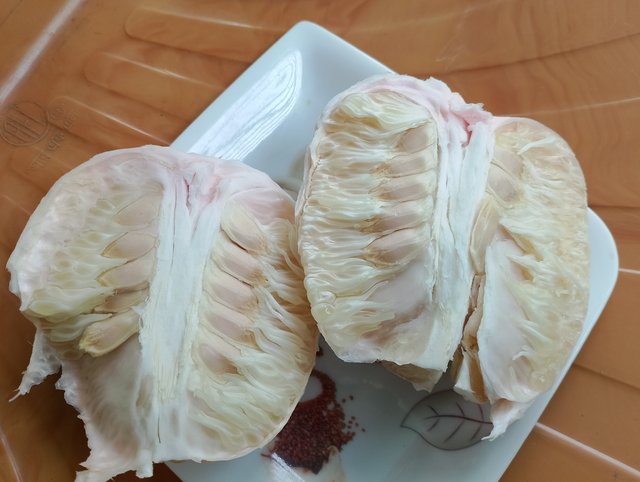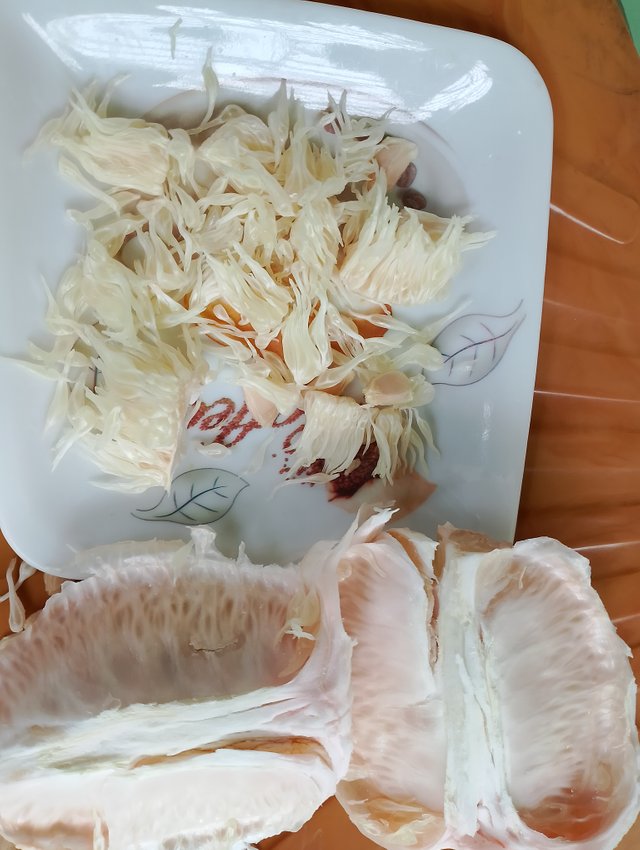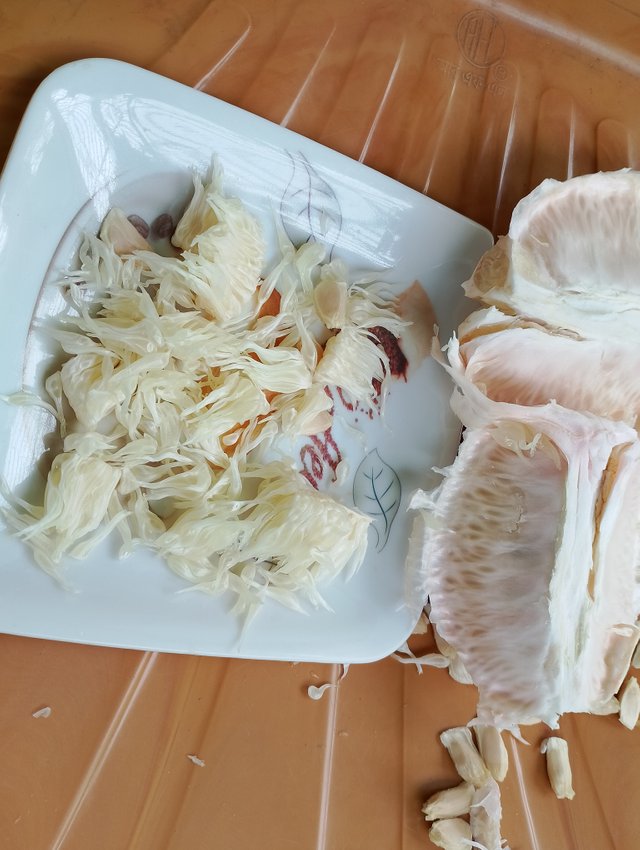Cheated by a Pomelo: A Bitter Experience
Hello dear friends,
I hope you all are doing well and spending a beautiful life with your loved ones. I wish you all happiness and peace.
People in our country have a special fondness for seasonal fruits. Like watermelon, mango, lychee, and jackfruit, pomelo (locally known as “jambura”) is also a popular seasonal fruit. During the monsoon, its demand increases as it helps cool the body, aids digestion, and provides a delightful taste and fragrance. I, too, am a big fan of pomelo. But this time, buying one led to an experience I’d describe as nothing short of a bitter deception—and I’d like to share that story with you.
Yesterday evening, after returning from work, I came across a street vendor with a cart full of pomelos. The fruits were large, shiny, and looked quite fresh. The price was only 40 taka each, not expensive at all. Since it’s pomelo season, I assumed most of the fruits would be ripe and ready to eat. Plus, pomelo is one of my favorite fruits. So, I decided to buy one and bring it home.
Later that night, I didn’t get the chance to eat it as I was too tired. Today, August 5th, being a public holiday in Bangladesh, I stayed home. Around noon, the sun was blazing and the heat was intense. I thought it would be perfect to enjoy a refreshing fruit in this scorching weather. Remembering the pomelo, I eagerly peeled it open—only to face a complete disappointment.
Despite its beautiful appearance from the outside, the inside told a very different story. The fruit was completely unripe. The flesh was dry, underdeveloped, and bitter in taste—nothing like the juicy and sweet flavor pomelo lovers crave. It was, quite frankly, inedible.
I was shocked and frustrated. This wasn’t just a disappointment—it felt like outright fraud. Some sellers, in their rush to make quick money, bring unripe fruits to the market before they’re ready to eat. Not only do buyers like me get cheated, but this also harms the reputation and appeal of seasonal fruits.
This issue isn’t exclusive to pomelos. We see it with many other fruits these days. Traders often pick fruits early or use chemicals and artificial ripening agents like formalin to make them look ready, even when they’re not. This practice is harmful not only to consumers’ health but also reflects a serious decline in ethics and honesty in business.
After this experience, I realized how important it is to be cautious when buying fruits. We shouldn’t just judge by how a fruit looks on the outside. If possible, we should ask sellers when the fruit was picked or how long it’s been on display. In some cases, requesting to see the inside before buying might be a smart move—although not always practical. Still, a little awareness can save us from such bitter outcomes.
Finally, I’d like to make a heartfelt request to fruit vendors: please don’t let greed ruin your customers' trust. Selling unripe or poor-quality fruit might earn quick money, but it damages your reputation and makes people lose confidence in local produce. To fellow consumers, I say—stay alert, ask questions, and don’t be afraid to walk away if something doesn’t feel right.
This story of buying a pomelo may seem trivial, but it holds a greater lesson. Behind every coin we spend is our hard work, sweat, and hope. Let’s ensure that no one takes that lightly.
Thanks all
| Device | Mobile |
|---|---|
| Model | Realme C- 53 |
| photographer | @joniprins |
| location | Dhaka,Bangladesh |








I understand your surprise and disappointment. Although you were able to overcome it very well with this post, which, based on your experience with this deceptive fruit, brought out implications about vendor fraud and the economy in general.
I hope the weather starts to improve soon and that you can find some juicy and delicious grapefruits.
$upvote40%